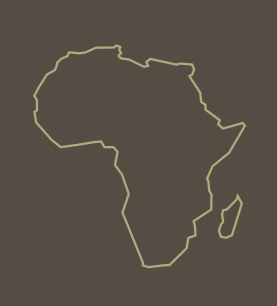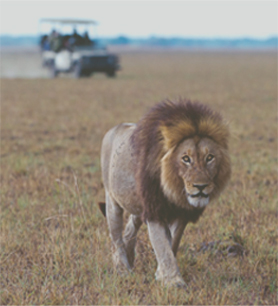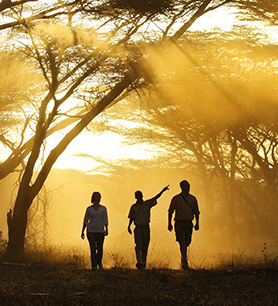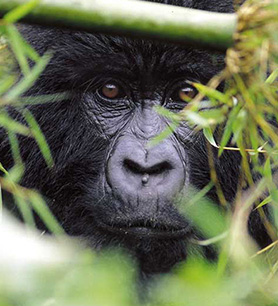We provide you with an essential practical guide, a compass to use before and during the journey, so that you can start your safari in Botswana having all the necessary and useful tools. It is a guide that we have been compiling over a long time, gathering notes, suggestions and information that we want to share with you. In order to answer the frequently asked questions regarding your departure and your stay, so that your safari can be safe, comfortable and carefully planned even in the most practical aspects. If you do not find all the answers to your questions, we are always at your disposal to expand on any topic, dissolve any doubts and satisfy any curiosity.

Botswana in brief
- Capital: Gaborone
- Population: around 2,2 millions
- Extension: 581,730 km2
- Local time: +2 GMT
- Language: Setswana and English
- Currency: Pula (BWP)
- International code: + 267

Luggage
We recommend that you limit your luggage to two bags per person, hand luggage included. Soft bags must be used as they are easier to transport and to stow. Internal flights are run by light aircrafts usually setting a weight limit of 15 kg per person, hand luggage excluded. Most lodges offer daily laundry service, usually by hand and not always included in the price.

Security
Botswana is a democratic country, its population is hospitable and the crime rate against tourists is low. Nonetheless, we recommend caution and common sense when travelling, especially in the cities and at night. Never display valuables and always keep them in a safe place. Wildlife is unpredictable and can be dangerous. Most lodges are not fenced in and are located in wild areas where animals roam free. Do not touch animals, do not feed them, do not approach them on foot if you are not accompanied by a guide, and do not make a noise which could attract or scare the animals.

Insurance
It is mandatory to have a proper travel insurance for the duration of the journey covering medical expenses, lost luggage and travel cancellation. Proof of the insurance coverage must be given before departure from your home country.

Electricity
The electric current in Botswana is 220/240 V. Some lodges provide electricity through solar panels and generators, sometimes at set times in the morning and after sunset. Others do not have plug sockets in the rooms, but offer mobile phone, camera and other device recharging facilities at the reception or in the communal areas. Plug sockets are with three round pins (SA) or three square pins (UK), so we advise you to bring along a universal adaptor. We recommend that you bring along a flashlight for use at night.

Photography
We recommend that you ask for permission before taking pictures of people. Do not take pictures of military personnel and public buildings such as airports or military bases. Never use the flash when you take pictures of animals. It is advisable to bring along a camera, with backup memory cards and batteries, and binoculars.

What to wear
We advice you to wear casual and comfortable clothes. Do not forget the temperature range between day and night, especially in the desert areas and during winter. For outdoor activities we advice you to wear multiple layers of clothes, so that you can easily remove them when the temperature rises. We recommend to wear soft colours, especially tops or shirts and long trousers for protection against sun and insects, a fleece or a warm sweater, a windbreaker, comfortable trekking shoes and flip flops. Do not forget cap, sunglasses and a swimsuit during summer. In winter we advice to also pack a scarf, gloves and wool hat. Lodges often offer blankets and hot drinks for outdoor activities during the coldest hours.

Health
We advice you to contact your doctor or the health service to know about anti-malarial prophylaxis and recommended vaccines, that might vary according to seasons and destinations. Upon arrival in Botswana, travellers coming from areas where yellow fever is endemic may be requested to exhibit the yellow fever vaccination certificate. Do not forget spray against mosquitos and high protection sunscreen. We recommend to drink only bottled water.

Passports and visas
A passport valid for at least 6 months with at least two blank pages is required to enter Botswana for EU citizens. The tourist visa is issued upon arrival at the border and it is valid for 30 days. When travelling with minors you have to provide an unabridged birth certificate. We advise you to have copies of your personal documents.

Payments
In the lodges accommodation is generally “all inclusive”, so it is not necessary to carry much cash in foreign or local currency. Pula (BWP) and US Dollar (USD) are the most used currencies for payments. We advice you to have US Dollars, also in small notes, for payments in the lodges, while in rural areas it is preferred to use Pula because it is often difficult to change money. In the lodges it is advisable to leave a tip of 10-20 USD per person per day for the guide and 5-10 USD per person per day for the staff. In restaurants it is customary to leave a tip equal to 10% of the bill. Most lodges, shops and restaurants accept major credit cards, but not all petrol stations accept card payments. Lodges often offer a currency exchange service for the main currencies. Nonetheless, we advise that you exchange currency and withdraw cash from ATMs or banks in the main cities.

Telephone and internet
Mobile phone reception is good in the main cities, but can be erratic or absent in remote areas. Usually communication between lodges in these areas happens via radio or satellite phone. Most lodges have internet connection, accessible at the reception or in the communal areas.

Recommended readings
- Birds of prey – Wilbur Smith
- Cry of the Kalahari – Mark and Delia Owens
- Tears of the giraffe – Alexander McCall Smith
- The lost world of the Kalahari – Sir Laurens van der Post
- Kalahari: viaggio tra i Boscimani di Namibia, Botswana e Sudafrica – Silvana Olivo
- Okavango river: the flow of a lifeline – John Mendelsohn and Selma El Obeid
- Bushmen: a changing way of life – Anthony Bannister
- Running wild: dispelling the myths of the African wild dog – John McNutt and Lesley Boggs
- The Africa diaries: an illustrated memoir of life in the bush – Dereck and Beverly Joubert
- Whatever you do, don’t run: true tales of a Botswana safari guide – Peter Allison
- Roberts birds of Southern Africa – Hugh Chittenden and Guy Upfold
- The safari companion: a guide to watching African mammals – Richard Estes





